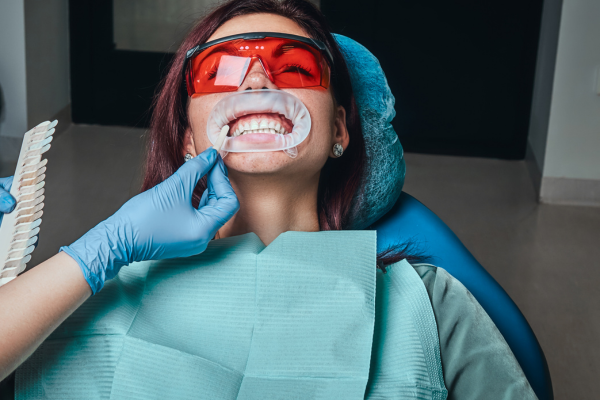Does Brushing Your Teeth Too Much Cause Gum Disease?

Every morning and evening, most of us stick to the golden rule of brushing our teeth regularly. But is there such a thing as brushing too much? In the pursuit of a perfect smile—especially when thinking of cosmetic treatments such as teeth whitening or consulting a teeth whitening dentist—it’s important to know whether over-brushing could actually harm your gums. This article explores the connection between excessive brushing and gum health, and explains how to achieve both healthy gums and a radiant smile with the best teeth whitening London treatments.
1. Oral Hygiene: Finding the Right Balance
Brushing more than twice a day—or brushing too aggressively—may seem like the right way to protect your teeth. However, UK dental professionals recommend brushing at least twice daily with fluoride toothpaste. The key is thoroughness, not intensity.
Too much pressure or too many brushing sessions can cause problems. Enamel—the hard outer layer of your teeth—can gradually wear down, leaving the sensitive inner layers exposed. This increases discomfort and weakens your teeth in the long term. A careful, gentle two-minute brush twice a day is more effective than several forceful attempts.
2. What Really Causes Gum Disease?
Gum disease, also known as periodontal disease, is caused by plaque. Plaque is a sticky film of bacteria that naturally forms on teeth. If not removed, plaque hardens into tartar, which irritates the gums. Early signs include redness, swelling, bleeding after brushing, and bad breath.
When left untreated, early gum inflammation (gingivitis) can progress to periodontitis, a more severe stage where gums recede, bone support is lost, and teeth become loose. Gum disease develops due to poor plaque control—not because you brushed too little or too much, but because brushing was not done properly.
3. The Hidden Risks of Over-Brushing
Enamel Wear
Excessive brushing can thin the enamel layer, which is vital for protecting your teeth. When enamel wears away, teeth become more prone to decay and sensitivity.
Gum Recession
Brushing too hard can physically push the gums back, exposing the roots of the teeth. This not only causes sensitivity but also creates spaces where bacteria can hide, making gum disease more likely.
Abrasion Marks
Over-brushing with medium or hard bristles—or using abrasive toothpaste—can cause grooves or V-shaped notches near the gum line. These are signs of damage directly linked to brushing too harshly.
Confusing the Symptoms
If your gums bleed or feel sore after brushing, you may think you need to brush harder. In fact, it’s often a sign you’re already brushing too hard, which worsens the problem instead of solving it.
4. Brushing the Right Way
Gentle Approach
Always use a soft-bristled toothbrush. Firm bristles may feel effective, but they can do more harm than good. Apply light pressure—enough so the bristles just skim the surface of your teeth and gums.
Proper Technique
Use small, circular motions rather than harsh back-and-forth scrubbing. If you use an electric toothbrush, let the brush do the work and avoid pressing too hard.
Timing and Consistency
The ideal routine is two minutes, twice a day. Brushing more often than this is unnecessary and can be damaging.
Wait After Eating
If you’ve had acidic food or drink, wait at least half an hour before brushing. Brushing too soon after acid exposure can accelerate enamel erosion.
Don’t Forget Interdental Cleaning
Brushing alone cannot reach between teeth. Daily use of floss or interdental brushes is essential to keep plaque at bay and prevent gum problems.
Dental Check-Ups
Regular visits to your dentist or hygienist are crucial. They can remove tartar, spot early signs of gum disease, and give tailored advice on your brushing technique.
5. Gum Health and a White Smile
So, does brushing too much cause gum disease? Not directly. Gum disease is caused by plaque, but over-brushing can damage gums and enamel, creating the right conditions for problems to develop.
For those considering teeth whitening London treatments, healthy gums are vital. Whitening works best when your teeth and gums are strong and free from irritation. Over-brushing before a whitening treatment can increase sensitivity, reduce enamel protection, and compromise your results.
A teeth whitening dentist London will usually check the condition of your teeth and gums before treatment. By following correct brushing habits, you’ll not only protect your oral health but also maximise the benefits of cosmetic care. When paired with expert care from the best teeth whitening London professionals, you can safely achieve both healthy gums and a bright, confident smile.
Conclusion: Brush Smart, Not Hard
The truth is clear: brushing too much does not directly cause gum disease, but the damage from over-brushing can lead to gum recession, sensitivity, and even higher risks of gum infection.
To keep your mouth healthy and prepare for any whitening treatment:
-
Brush gently with a soft brush for two minutes, twice daily.
-
Use fluoride toothpaste.
-
Wait after acidic food or drink before brushing.
-
Clean between your teeth every day.
-
See your dentist regularly.
By brushing smart—not hard—you’ll avoid unnecessary damage, protect your gums, and maintain strong enamel. This way, you’re not only safeguarding your oral health but also setting the foundation for the best teeth whitening London results, carried out safely by a trusted teeth whitening dentist London.
- Art
- Causes
- Crafts
- Dance
- Drinks
- Film
- Fitness
- Food
- Games
- Gardening
- Health
- Home
- Literature
- Music
- Networking
- Other
- Party
- Religion
- Shopping
- Sports
- Theater
- Wellness


